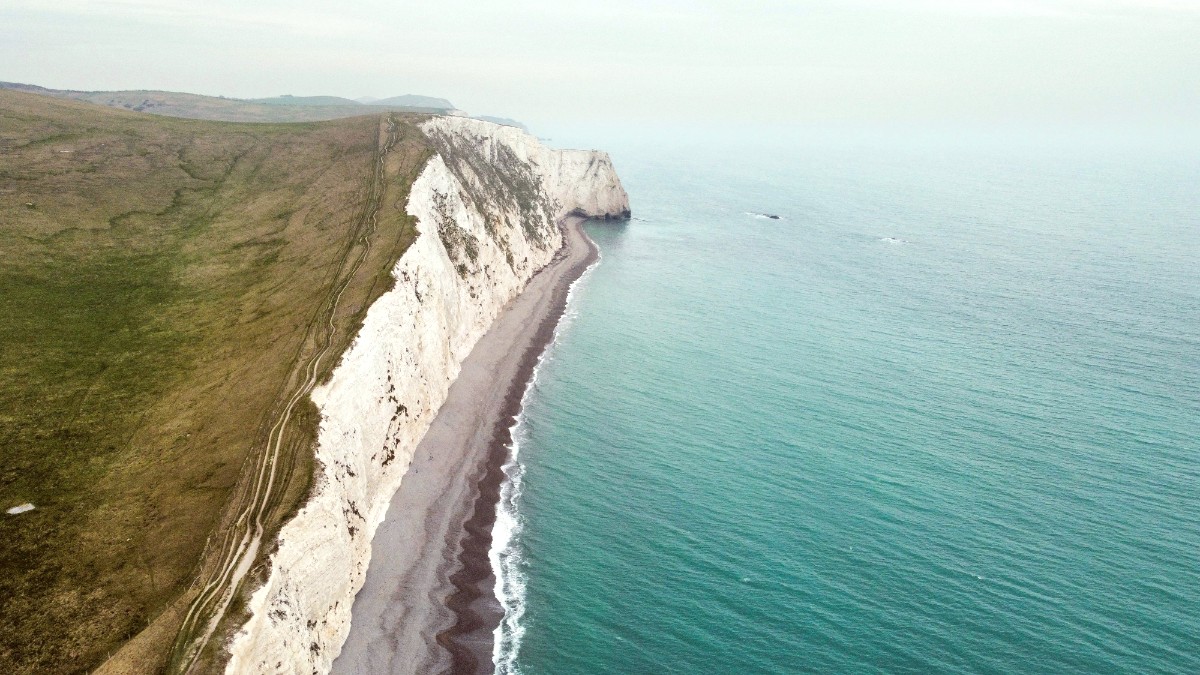
Southwest England, England
Temperatures gradually rise in spring, bringing milder conditions. Average highs are 9-16°C (48-61°F), lows 3-8°C (37-46°F). Summer offers the warmest weather and longest daylight hours, with average highs of 18-22°C (64-72°F) and lows 11-15°C (52-59°F).
Autumn temperatures cool (highs 10-17°C, lows 5-11°C), with beautiful foliage. Winter is the coldest, with highs 6-9°C and lows 1-4°C. Heavy snowfall is rare on the coast. Rainfall appears year-round, slightly wetter in autumn and winter. Humidity stays moderate.
Rainfall appears year-round, with slightly wetter conditions in autumn and winter months. Average monthly precipitation is 60-90mm. Short, sudden showers can happen even on sunny days.
Coastal areas may experience strong winds, especially in cooler months. Snowfall is rare, especially along the coast, though inland areas might see occasional light dusting.
Peak tourism, highest prices
Warmest weather, long daylight, sea at its warmest, many events.
Crowded, highest prices, heavy traffic.
Good balance, fewer crowds
Pleasant temperatures, fewer crowds, lower prices.
Unpredictable weather, some reduced hours.
Fewest crowds, best value
Quiet, lowest accommodation prices, atmospheric visits.
Coldest, shortest days, many seasonal closures.
Strong coastal winds and storms are common, notably during autumn and winter. These may impact ferry services, coastal path accessibility (due to falling debris or dangerous conditions), and outdoor plans. Always check local weather forecasts before setting out, especially for coastal walks.
Summers generally remain mild, but occasional heatwaves can occur, making sun protection important. Conversely, some summer days may be surprisingly cool and wet, underscoring the need for layered clothing.
Spring (April-May) and Autumn (September-October).
Summer (July-August) for warmest water.
Shoulder seasons for agreeable weather and fewer crowds.
After storms or high tides expose new finds.
Spring and autumn for birdwatching, red squirrels active year-round.
Entry requirements for Dorset align with the broader United Kingdom immigration rules.
This visa category applies to individuals visiting for tourism, seeing family or friends, short-term study (up to 6 months), or certain business activities.
The UK is progressively introducing the ETA scheme. This system will eventually make travelers from countries currently visa-exempt for short stays apply online for an ETA.
Upon arrival at an UK port of entry (airport, ferry terminal, or Eurostar station), immigration procedures take place.
Financial planning supports an enjoyable visit free of financial stress.
The currency throughout Dorset and the UK is the Pound Sterling (£, GBP). Major credit and debit cards (Visa, Mastercard, Amex) are widely accepted. ATMs are readily available in all towns and larger villages; most are free to use, but your bank may charge foreign transaction fees. Inform your bank of travel plans.
Currency exchange services are in larger towns and airports, but rates may be less favorable. Contactless payment is common and preferred for small transactions.
Focus on hostels, campsites, supermarket groceries, and public transport. Many free attractions await discovery.
Daily cost: £65 - £135
Limited dining out, shared rooms.
Enjoy hotel rooms or guesthouses, a mix of pub meals and restaurants, and some paid tours.
Daily cost: £170 - £310
Some car rental, moderate shopping.
Experience boutique hotels, fine dining, private transfers, and exclusive activities.
Daily cost: £400+
High-end experiences, extensive shopping.
| Category | Budget | Mid-Range / Luxury |
|---|---|---|
| Accommodation (per night) | £25-£90 (Hostel/basic B&B) | £100-£500+ (Hotel/Resort) |
| Meals (per person) | £8-£20 (Takeaway/Pub Lunch) | £25-£45+ (Mid-range/Fine dining) |
| Attractions | £0-£15 (Free sites/small museums) | £10-£40 (Major sites/tours) |
Dorset presents a safe destination, but travel awareness helps a smooth trip.
Routine vaccinations should be current. Consult your doctor 4-6 weeks before travel.
Minor ailments like colds/flu. Sunburn and ticks (in rural areas) occur. Use sun protection and check for ticks.
Tap water is safe to drink. Food hygiene standards are high.
Emergency Number: 999 (Police, Fire, Ambulance, Coastguard)
For non-urgent medical advice, dial 111 (NHS non-emergency number). Major hospitals with A&E are in Bournemouth, Poole, and Dorchester.
Pharmacies are common in towns, offering over-the-counter medications.
EU citizens: EHIC/GHIC for state-provided healthcare. Non-EU citizens may be charged for services; travel insurance is advisable.
Dorset is a very safe county with low crime rates. Petty crime (pickpocketing) occurs in crowded tourist areas; stay aware of surroundings.
Coastal erosion/landslides occur on the Jurassic Coast. Stay on designated paths, away from cliff edges and bases. Strong winds/storms can impact coastal paths.
Be aware of tide times on beaches; some areas become cut off. Rip currents may be present on some beaches; swim near lifeguarded areas.
Exercise general caution as you would in any unfamiliar place. The rural areas are specifically peaceful and safe.
Comprehensive travel insurance is highly recommended for all travelers. It should cover:
Treatment, hospitalization, and emergency medical evacuation.
Non-refundable expenses if your trip is cancelled or cut short.
Reimbursement for lost, stolen, or damaged items and personal liability.